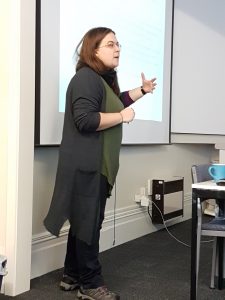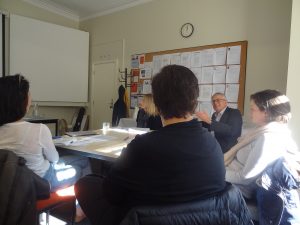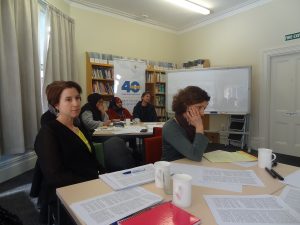On Monday 30 July 2018 Dr Tiffany Cone from the Asian University of Women gave a workshop to Global Migrations members and community contacts. The workshop comprised three parts: an overview of the Asian University of Women; an assessment of what is being done internationally to assist those of refugee background; and brainstorming recommendations for the tertiary sector.
The International and National Context: What is currently being done?
Institutions are doing good work to assist refugee background students including:
- access to online learning
- free language tuition
- funding and job placement
- full scholarships
- mentoring programmes
- establishing University clubs for refugees
- advising Equity Office of refugees’ needs
- recording refugees as an equity group (though not all self-identity this way because of the way refugee status is framed or they arrive young and do not identify that way)
Nevertheless, research with refugees reveals that they often encounter:
- alienation
- family and community demands
- lack of community support
- peer pressure
- English language difficulties
- financial hardship
- lack of any information about University programmes
In the New Zealand context key concerns include:
- finance
- immigration policies
- distance
- lack of knowledge
- New Zealand’s lesser reputation compared with the UK and North America
- lack of established ethnic communities.
At the same time, the country is attractive for allowing students to work and the possibility of pathways to permanent immigration.
Recommendations for the Tertiary Sector
The workshop concluded by developing some recommendations for the tertiary sector. Among the recommendations were:
- The need for universities to undergo a change in mindset to be less focused on profit-making and return to the core values of tertiary education. This includes the need for Otago University to explore the ways to fund 5-6 refugee background students to develop high-level English language skills for university entry.
- Institutions to learn from each other and develop collaborative strategic frameworks.
- Universities to consider how they might contribute to refugee resettlement by fostering work opportunities in the wider university environment (for example, in catering, gardening etc)
- Recognition of what refugee-background students bring to the tertiary sector.
Download Materials
- Dr Cone’s Powerpoint presentation Cone Workshop Powerpoint (419KB)
- Summary of key international developments to support refugees in the tertiary sector Higher Education and Refugee Resettlement (85KB)




